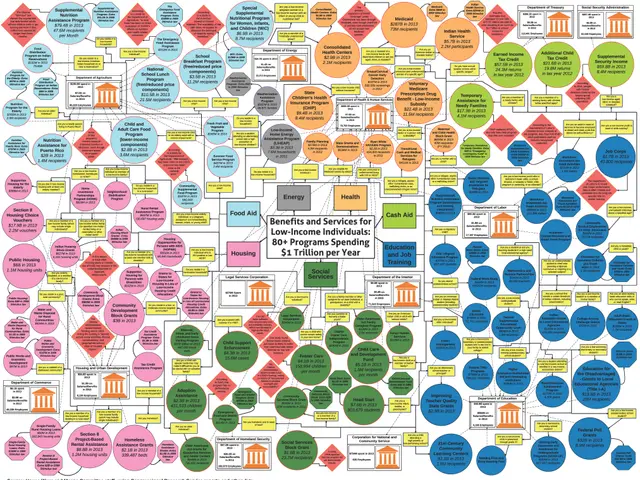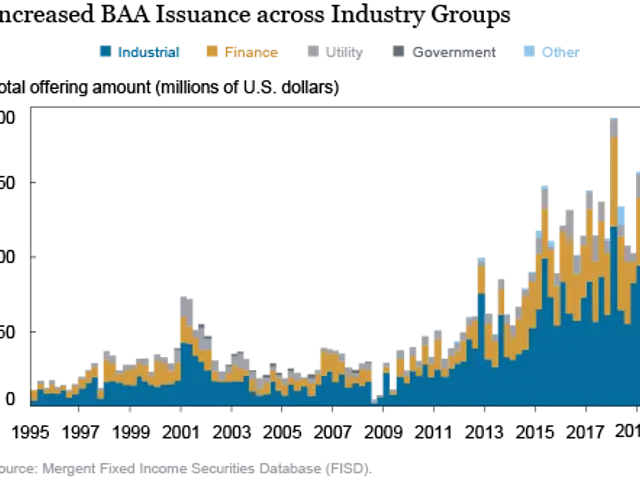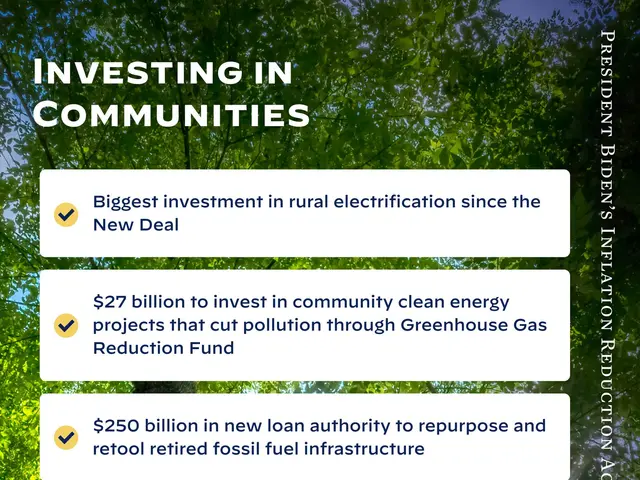Should Realty Income Be Purchased, Sold, or Held Until 2025?
In the realm of real estate investment trusts (REITs), Realty Income Corporation, ticker symbol O, has garnered a notable following. With a portfolio spanning 15,450 commercial properties across 90 different industries, this well-diversified REIT has been known for consistently dishing out rising, monthly distributions for quite some time.
2024, however, was an iffy year for Realty Income, with the stocks dropping despite the generous dividends. So, the million-dollar question is - will Realty Income bounce back in 2025? Let's delve into the reasons why investors might want to buy, sell, or hold Realty Income in 2025.
Buy Realty Income
Consistency is Key
Realty Income's reputation as a sturdy workhorse for income investors is well-deserved. One of the few companies shelling out monthly dividend checks, Realty Income has a remarkable record of 655 consecutive monthly distributions. Not only that, but the REIT has managed to hike its payouts in each of the past 109 quarters.
Secure Tenancy and Industry Diversity
Realty Income's business model is highly protective, thanks to the long-term, net lease agreements it secures with its tenants. Under these agreements, tenants not only pay rent but also cover property taxes, insurance, maintenance, and other operating expenses.
Furthermore, Realty Income operates predominantly in three robust industries: supermarkets, convenience stores, and dollar stores. These sectors are typically resilient and continue to thrive in different economic climates.
Impressive Performance and Dividend Yield
Realty Income's impressive performance is evident in its compound total annual return since its 1994 public debut. At an eye-popping 14%, it has outperformed the S&P 500's return of just above 11% in the same time frame. Plus, the current dividend yield of 5.8% is not something to sneeze at.
Sell Realty Income
Despite these impressive fundamentals, Realty Income's future might not be as bright as some might assume. According to Wall Street analysts, 2025 could be a challenging year for the company.
Potential Issues in 2025
Analysts have slashed their price targets on Realty Income multiple times in January alone, indicating a general caution about its 2025 performance. The consensus seems to be that the shifting expense burden from Realty Income to its tenants may make its operations more unpredictable, especially in an uncertain economic climate.
Realty Income's current portfolio occupancy rate of 98.7% is impressive, but it could quickly change if the economy takes a turn for the worse or operating costs become unsustainable.
Hold Realty Income
Despite the Jekyll and Hyde situation in 2024, Realty Income is a company that thrives on slow and steady growth. The third quarter of 2024 saw a mere 6% increase in adjusted funds from operations. For 2025, Realty Income is aiming for a 5% increase in adjusted funds from operations.
The upcoming fourth-quarter financial update in February will provide investors with much-needed clarity. It will show whether Realty Income will stick to its earlier guidance or if it has identified challenges that some analysts have warned about.
The dividend streak and fractional dividend increases might seem underwhelming, but the dividend yield is hard to ignore. With over 90% of the collected rent coming from recession-resistant businesses or those free from e-commerce disruption, Realty Income's bottom line has remained stable for 27 out of the past 28 years.
Verdict
Can Realty Income bounce back in 2025? The strong fundamentals, long-term track record, and defensive business model suggest it can, but the challenging environment might make the journey more difficult than some investors expect. For now, it might be wise to hold onto Realty Income stocks or consider buying if the stock falls even further.
Investors who believe in the power of consistency and dividends might consider buying Realty Income in 2025, given its 655 consecutive monthly distributions and a 109-quarter record of dividend hikes. The company's robust business model, anchored by long-term net lease agreements and operation in resilient industries, could provide a stable income stream.
Despite the potential issues analysts have highlighted, such as shifting expense burdens and economic uncertainty, Realty Income's resilient bottom line and high dividend yield of 5.8% make it an attractive option for those who prefer to hold onto their investments for the long term.








